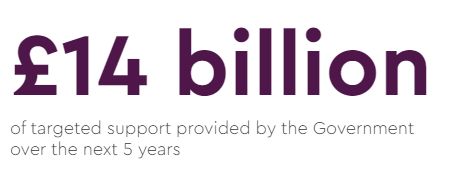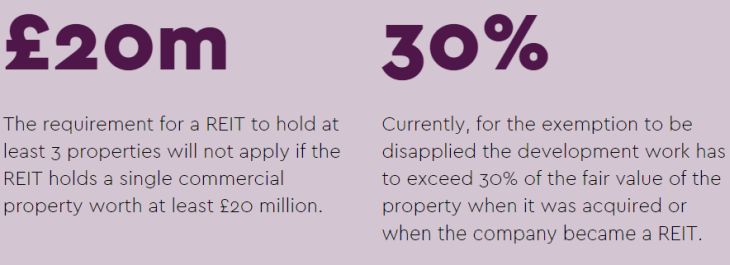2. Real estate tax update
2.1 Business rates revaluation
The most recent revaluation of business properties for business rates came into effect on 1 April 2023, based on property values as at 1 April 2021. It is 6 years since a revaluation took place, and this revaluation is in accordance with the Government's Review of the business rates system in 2021.
Various measures were announced in the Autumn Statement in November 2022 to reduce the burden of business rates which the Government says will provide targeted support worth £13.6 billion over the next 5 years, including:
- freezing the business rate multiplier in 2023-24;
- ensuring that transitional relief relating to next year's revaluations does not come at the expense of those whose property's rateable value decreases; and
- extending and increasing Retail, Hospitality and Leisure Relief.

In addition, the Government has confirmed that the previously announced Improvement Relief (to ensure ratepayers do not see an increase in their rates for 12 months as a result of making qualifying improvements) will be introduced from April 2024 and will be available until 2028, at which point the Government will review the measure.
2.2 Capital allowances
In the March 2023 budget, the Chancellor announced full expensing of qualifying capital expenditure incurred in the next three years, with the intention of making this permanent afterwards. This means that 100% of any qualifying expenditure on main rate expenditure will be deductible in the year it is incurred, giving immediate relief in 25 pence in the pound. This is significantly more generous than the UK's previous system of capital allowances, which only allowed 18% of the expenditure to be deducted each year on a reducing balance basis, giving tax relief at 3.4p in the pound in the first year, and lower in following years, though gives similar relief to the "super deduction" which was available from 2021 to 2023. For "special rate" expenditure, a 50% first-year allowance will be available, with the balance being deducted at 6% a year on a writing down basis.
The Chancellor noted in the budget speech that this would give the UK the most generous capital expenditure relief regime in the G7 and the joint most generous regime across advanced economies in the world. It will cost the Exchequer £9 billion a year but the OBR expects it to increase investment in the UK by 3% a year. As well as giving generous tax relief, this will significantly reduce compliance burdens in calculating capital allowances and maintaining sufficient records to establish their availability. You can read more about the Spring Budget here.
2.3 Further changes to the REIT rules and rules relating to charities
As part of the Government's ongoing review of UK fund structures, it has announced three changes to the rules relating to real estate investment trusts (REITs) to enhance their attractiveness and flexibility. First, as previously trailed as part of the Edinburgh Reforms in December last year, the requirement for a REIT to hold at least 3 properties will not apply if the REIT holds a single commercial property worth at least £20 million.
The general tax exemption for the sale of a property is turned off for a REIT who sells a property within 3 years of development work being undertaken. Currently, for the exemption to be disapplied the development work has to exceed 30% of the fair value of the property when it was acquired or when the company became a REIT. The second announced change, also previously trailed, is to allow REITs to use the market value at the time development commenced, which ensures that REITs are not penalised for properties that have grown significantly in value since they were acquired.
Thirdly, and unexpectedly, the Government also announced a welcome change to the withholding tax treatment of property income distributions (PIDs) from REITs when they are paid to partnerships. Currently, all partners in a partnership must qualify for a tax exemption from PIDs for that partnership to be able to be paid a PID without withholding. The announced change will enable the REIT to look through to the underlying partners in a REIT and withhold on the PID only to the extent the underlying partner would have had withholding had they invested directly. This will be particularly important for funds as, since 1 April 2022, it has been possible for widely-held funds to incorporate subsidiary "private REITs" that do not need to be listed on a stock exchange. Where those funds are themselves constituted as partnerships this change will ensure that the fund structure does not itself give rise to any UK tax leakage that would not have arisen had the ultimate investors invested in the real estate portfolio themselves.
In addition to the REIT-specific changes, the definition of "charity" for UK tax purposes will be amended to remove EU and other foreign charities, so that only UK charities will fall within that definition. Amongst its other effects this will have an impact on who can be counted as an "institutional investor" for the purposes of the REIT and the qualifying asset holding company (QAHC) rules, although there are saving provisions which exempt those who already hold shares in a REIT or QAHC on 15 March 2023.

Originally published 10 May 2023
The content of this article is intended to provide a general guide to the subject matter. Specialist advice should be sought about your specific circumstances.



